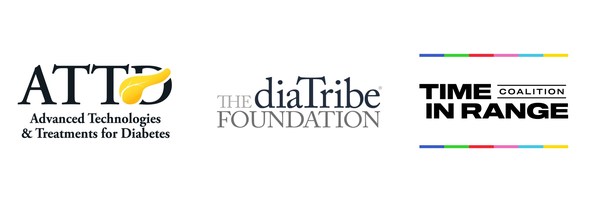New International Consensus on CGM Clinical Trial Metrics Aims to Spur Diabetes Treatment Advances

SAN FRANCISCO,Dec. 7,2022 -- The diaTribe Foundation,Advanced Technologies & Treatments for Diabetes (ATTD),and the Time in Range Coalition announced today a new international consensus regarding continuous glucose monitoring (CGM) metrics for clinical trials to help accelerate the development of new and improved treatments for people living with diabetes.
The groundbreaking consensus statement,endorsed by numerous leading US and international diabetes organizations,including the American Association of Clinical Endocrinology,American Diabetes Association,Association of Diabetes Care and Education Specialists,DiabetesIndia,European Association for the Study of Diabetes,International Society for Pediatric and Adolescent Diabetes,Japan Diabetes Society,and JDRF,was published in The Lancet Diabetes & Endocrinology on December 6,2022. The article,"Continuous glucose monitoring and metrics for clinical trials: an international consensus statement," is available here.
"People living with diabetes need better options to treat and manage their disease,and one essential tool to achieve that goal is the use of CGMs,which help individuals know if their blood glucose levels are in range,above range,or below range," said Julie Heverly,senior director of the Time in Range Coalition.
"Increasing time in range (TIR) has been found to decrease serious and life-threatening complications,enhance daily disease management,and improve the lives of people living with diabetes," she said. "Standardizing the use of CGM data in clinical trials of diabetes therapies will help ensure that the next generation of treatments are focused on increasing patients' TIR and,therefore,quality of life."
There is international recognition of the importance of TIR as an actionable metric for daily diabetes management and a means to improve long-term health outcomes. As such,earlier this year,the diaTribe Foundation,ATTD,and the Time in Range Coalition convened a group of international experts to discuss and reach consensus on the role of CGMs and CGM-derived metrics in clinical trials for diabetes treatment.
"As diabetes technology continues to advance,the collection,analysis,and reporting of CGM data in clinical trials needs to be standardized so clinicians,scientists,and regulators across the globe can incorporate it into their decision-making to the benefit of individuals living with diabetes," said Prof. Tadej Battelino,head of endocrinology at UMC Ljubljana and ATTD co-chair,who helped lead the international consensus committee of experts.
This historic consensus includes 23 recommendations for optimizing CGM-derived glucose data in clinical studies,and the parameters and specific glucose metrics researchers should evaluate and report,collection of baseline data and timing,information on clinically relevant changes in key glucose metrics over time,and training for both trial staff and participants.
Jim Carroll,CEO of The diaTribe Foundation,noted,"In 1993,when the Diabetes Control and Complications Trial (DCCT) established A1C as the gold standard for diabetes management,continuous glucose monitors were merely a dream. Today,the diabetes community benefits greatly from this exceptional technology and this consensus is the next important development in the effort to develop and deliver much-needed new diabetes therapies."
In addition to The diaTribe Foundation,and all the professional associations that have endorsed the consensus statement,representatives from the US Food and Drug Administration and the European Medicines Agency offered their expert opinions during the consensus-reaching process and their contributions have been acknowledged in the paper.
For more information,please consider joining the ATTD Forum - Online First Release event where Prof. Battelino will present the consensus manuscript on Tuesday,December 6,2022,at 10AM ET (7AM PST,4PM CET). The event will be held on Zoom,https://us02web.zoom.us/j/84222378009; Meeting ID: 842 2237 8009
For the full consensus report: https://www.thelancet.com/journals/landia/article/PIIS2213-8587(22)00319-9/fulltext
The diaTribe Foundation is dedicated to improving the lives of people with diabetes and advocating for action. Our team is focused on making people smarter about diabetes and obesity. We understand the patient experience and are proud that we are viewed as a helpful,credible resource. Our free,weekly publication,diaTribe Learn,provides the most up-to-date and accurate news and perspectives on research,drugs,technology,and the lived experience in diabetes. We serve as a voice for patients in advocating for advances in healthcare policy and regulatory change. We seek to eliminate the burden of diabetes stigma and improve access to healthcare for all.
The International Conference on Advanced Technologies and Treatments for Diabetes (ATTD) was established in 2008 and has held 14 annual meetings since then. The purpose of the ATTD meeting is to highlight innovative technologies in diabetes treatment. It brings together developers of new technologies with the diabetes professionals and caretakers as well as acquainting clinicians with techniques for new treatments. Distinguished international professionals discuss and disseminate information on the latest technologies and treatments in our field. ATTD aims to improve and harmonize the treatment for patients with diabetes by providing medical education to healthcare professionals and by offering best practice approaches.
The Time in Range Coalition (TIRC) is a global effort to bring together a diverse group of diabetes stakeholders,including nonprofit organizations,patient advocates,professional societies,and industry to drive awareness and adoption of Time in Range (TIR) as a means to improve daily diabetes management and long-term outcomes for people with diabetes. By educating patients,health care providers,and regulators about the science of TIR and continuing to generate new evidence on its value,we are working to establish TIR as an essential part of diabetes management and to make TIR accessible to all people with diabetes.